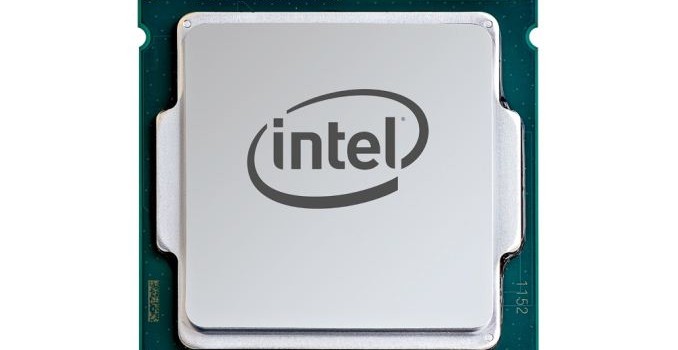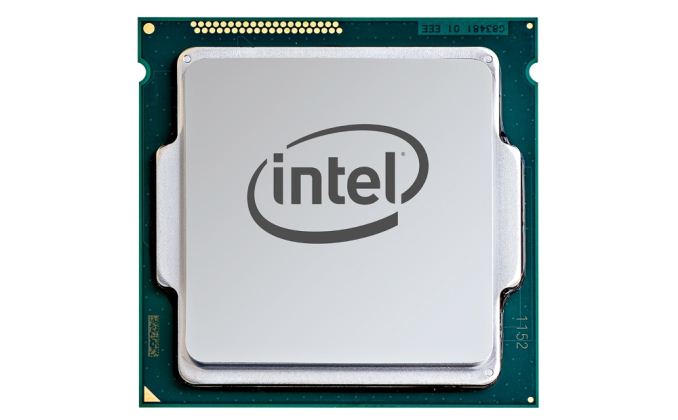Intel to Remove Legacy BIOS Support from UEFI by 2020
The PC Basic Input/Output System (BIOS) will turn 39 in three years, and as it turns out, this is when it is going to die on 64-bit Intel platforms. In recent years, Intel has implemented its Unified Extensible Firmware Interface (UEFI) mechanism with legacy BIOS support as an additional option, however the company intends to remove legacy BIOS support from its UEFI by 2020 in an effort to improve security. For most users, the removal will go unnoticed, but for those who use and rely on legacy hardware on the newest platforms, it means migrating to other platforms.
BIOS functionality has evolved over the years, but its key purposes remained intact – run the POST (power-on self-test) to identify and initialize key system components (CPU, RAM, GPU, storage, DMA controllers, etc.), lead to OS boot and then provide certain I/O functions for older operating systems. Standard PC BIOSes from the early 1980s had numerous limitations (a 16-bit processor mode, 1 MB of addressable memory space), which needed to be hacked around starting in the late 1980s, but by the 2000s the industry started to move on to a new iteration: UEFI. UEFI was designed to not have decades-old constraints and is considerably more sophisticated in general.
In order to guarantee a smooth transition from BIOS to UEFI (by ensuring compatibility with legacy software and hardware that uses 16-bit OpROM), the Unified EFI Forum (which consists of virtually all the important developers/suppliers of hardware) defined several UEFI system classes and introduced an optional Compatibility Support Module (CSM) to UEFI class 2 to help smooth the process.
The vast majority of PCs today feature UEFI class 2 and thus can expose either UEFI or BIOS interfaces, which can be selected in the BIOS configuration. There are systems that belong to UEFI class 3/3+ already (e.g., Microsoft Surface Book), but they are rare. In a bid to make capabilities like UEFI Secure Boot ubiquitous, Intel plans to remove CSM support from new client and server platforms by 2020. As a result, all new platforms from that point on will be strictly UEFI class 3.
Once CSM is removed, the new platforms will be unable to run 32-bit operating systems, unable to use related software (at least natively), and unable to use older hardware, such as RAID HBAs (and therefore older hard drives that are connected to those HBAs), network cards, and even graphics cards that lack UEFI-compatible vBIOS (launched before 2012 – 2013). Those who need older programs will still be able to run them in virtualization mode, but outdated hardware will have to be retired or remain on older platforms.
For the remaining years, Intel recommends to its partners to improve the UEFI user experience, promote UEFI features like secure boot, signed capsule and other, and remove DOS/BIOS dependencies from production maintenance tools. Essentially do everything to lower significance of CSM.
An interesting question regarding depreciation of legacy BIOS support on Intel’s new platforms is which of them will be the first to drop CSM in the client space. Intel is preparing a number of client platforms for mainstream desktop and mobile PCs (Cannon Lake, Ice Lake) to be released in the coming years, but at present we have no idea whether the company intends to trim CSM to a point in 2020, or if it will be a hard change over.
It remains to be seen whether AMD has similar plans – we have reached out to determine the state of play. The main reason Intel is performing this change is due to security, and certain OEMs may require specific UEFI features in their future products.
Update 11/23: *The original BIOS was invented by Gary Kildall of Digital Research for computers based on Intel 8080/85 processors and CP/M operating system in circa 1975. Then, IBM incorporated BIOS into its IBM PC based on the Intel 8088 in 1981. Since for many the history of personal computers starts from IBM PC, the history of BIOS starts from 1981 as well. In this case, BIOS is 36 years old today.
Related Reading
- The AnandTech Coffee Lake Review: Initial Numbers on the Core i7-8700K and Core i5-8400
- The AMD Zen and Ryzen 7 Review: A Deep Dive on 1800X, 1700X and 1700
- Samsung Laptop UEFI Bugs: Not Just for Linux
- Intel Officially Reveals Post-8th Generation Core Architecture Code Name: Ice Lake, Built on 10nm+











